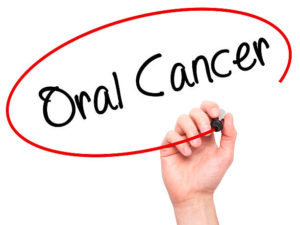How Does Oral Cancer Start? Where Do Most Oral Cancers Occur?
A type of neck and head cancer, oral cancer can develop anywhere in the mouth, even in the gums and inside the cheeks. Meanwhile, oropharyngeal cancer affects the back of the mouth and throat lining. The average age at diagnosis is 62 years, with 25 percent of cases happening before age 55. The disease has been shown to more likely to affect males than females.
During its early stages, oral cancer usually does not show any signs or symptoms. Because of this, it is important for heavy drinkers and smokers to regularly have checkups with a dental or health professional, as alcohol and tobacco are risk factors for mouth cancer. Dentists and doctors can spot oral cancer signs in its early stages.
Symptoms of Oral Cancer
Precancer
Some of the first signs of developing cancer usually include leukoplakia and oral lichen planus. The former is characterized by white patches in the mouth that does not disappear even with rubbing, while the latter are areas of white lines with a reddish border, mostly with ulceration.
Oral lesions may be precancerous. However, they do not necessarily mean that the person has cancer. This is why it is best to talk to your doctor if you notice any changes happening in your mouth. Monitoring changes can help spot oral cancer in its early stages when it is still easier to treat.
Cancer
Once cancer develops, you may notice some patches on the lining of your tongue or mouth, mostly colored red and white. There are also sores and ulcers that do not heal, as well as lumps or thickening of the gums or mouth lining. You can notice loose teeth for no apparent reason, along with numbness, pain, and bleeding in the mouth.
Other signs include swelling in the jaw, hoarse voice, ill-fitting dentures, sore throat or a feeling that something is stuck in your throat, and difficulty chewing, swallowing, and moving the jaw or tongue. Take note that having these signs does not mean that you have oral cancer, but it helps to get them checked by a doctor.
Causes of Oral Cancer
Cancer happens when there is a genetic change in the body resulting from cells growing out of control, forming a tumor. With time, these cells can move to other parts of the body. About 90 percent of oral cancers are squamous cell carcinoma. This means that they start in the squamous cells lining the lips and inside the mouth.
Risk Factors of Oral Cancer
Doctors do not exactly know why these changes in the cells happen, although some risk factors appear to increase the chances of oral cancer developing. This includes a previous history of neck and head cancer, smoking or chewing tobacco, regularly chewing betel nuts, using snuff from tobacco, excessive alcohol consumption, and HPV infection.
Other factors that increase the risk of oral cancer are gastroesophageal reflux disease; ultraviolet exposure to the lips via sun; sunbeds and sunlamps; chronic wound or trauma; exposure to chemicals like formaldehyde, sulfuric acid, and asbestos; previous radiation therapy in the neck or head; and drinking very hot mate tea.
Preventing Oral Cancer
To reduce the risk of oral cancer, it is important to avoid using any tobacco product; avoid excessive alcohol consumption; avoid chewing betel nuts, and monitor and report any changes in the mouth. Doctors also recommend getting an HPV vaccination, with study findings linking HPV and oropharyngeal cancer.
There are many ways to prevent oral cancer from developing. Aside from the ones listed above, it also helps to maintain good oral hygiene, combined with a healthful diet with lots of fresh fruits and vegetables. Finally, get regular checkups with a reputable dentist in your area so you can spot any dental problems in their early stages.






 |
|